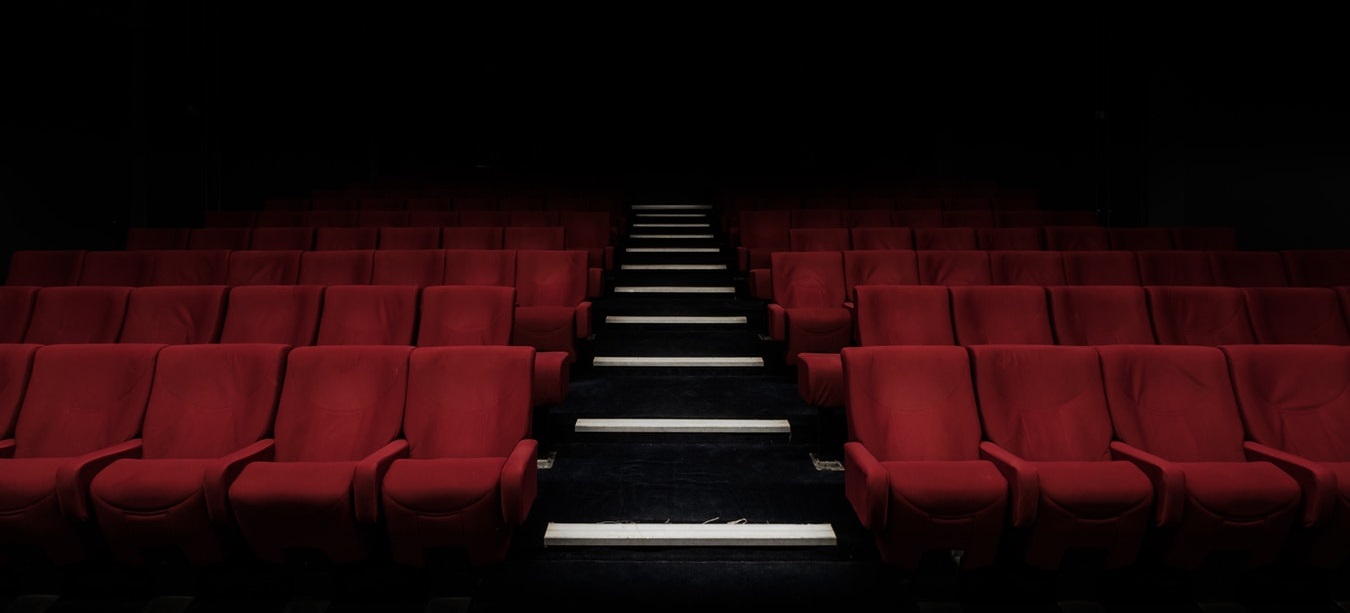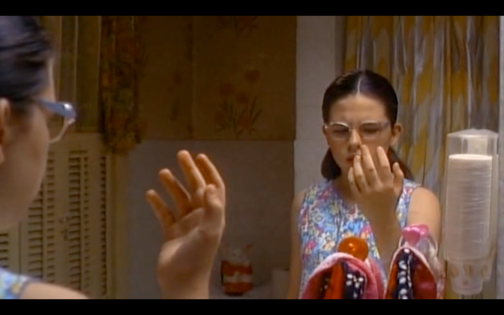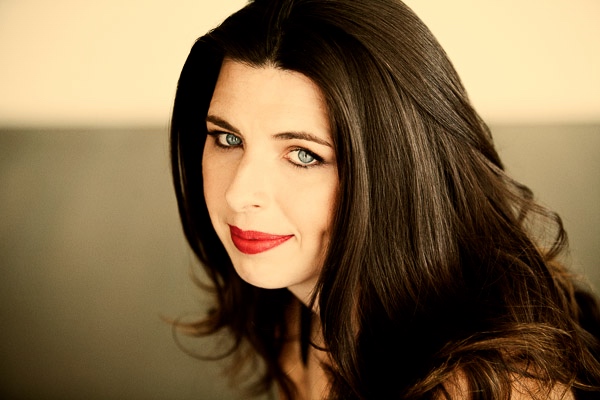Ten days later, I’m still in awe of the magnificence witnessed in RADA’s Jerwood Vanbrugh 160-seat theatre. The play, my favorite of Shakespeare’s tragedies, started without warning. The room blackened, a shadow passed, and he appeared—Hiddleston’s Hamlet. Our world disappeared as his opening melancholy set the tone and prepared the audience for the brilliance to come.
After his somber, affecting rendition of Ophelia’s ode to Polonius, And Will He Not Come Again, the production thrust forward at an intense pace, which propelled this story almost without time to breathe. Rather than dreading the length of Shakespeare’s longest play, you want it to continue indefinitely.
Who better than Kenneth Branagh to direct Hamlet? With him on board, I anticipated a spectacular show, despite questions made of Tom Hiddleston’s age. My answer: He was too young for Coriolanus, and he triumphed above expectations.
I was, however, disappointed that what was dubbed a fundraiser for the Royal Academy of Dramatic Arts, missed the undeniable money-making opportunity to film the production for the world’s viewing pleasure and posterity. As this was the case, I flew the 5200 miles/8400 kilometers from Las Vegas to London when the universe blessed me with a successful ballot.
And, I’m so thrilled I did.
Branagh’s mastery of the material allowed him to modernize without corrupting the source. The updates create opportunity for unexpected humor in this dark and twisted tale. Just before your soul bursts with empathy, an upswing will have you in a near-slapstick fit of giggles. His decision to feature Hamlet reading “Reasons to Stay Alive” during the “Words, words, words” scene struck me as particularly clever. Between disco, condoms, and pelvic thrusts, Branagh touches on topics more boldly than the Bard’s quill might have suggested.
The cast, a mix of new and established thespians, shined as an ensemble. There were a few weak links as expected with such extraordinary talent on hand, but they did not rob from the success of the production.
Though clearly most came for Hiddleston, two actors managed to steal some of the crowd’s near-constant focus on him. No easy feat.
Whether as Polonius or Osric, Sean Foley’s timing and delivery wowed the audience. He brought a light, but powerful energy to his scenes, and a much-needed smile to our faces.
However briefly we saw Ansu Kabia, from the regal aspect of King Hamlet, to the dramaturgy of the Player King, to the jocular gravedigger (complete with skull drum solo!) the weight of his presence commanded the stage. And the room.
With so many gender-swapped roles (Bernarda, Marcella, Rosacrantz, Guildastern, and best of all Horatia) one could make the obvious joke that Hamlet scorned poor Ophelia because he’s the kind of prince who likes girls just as friends. His overt masculinity (not always present in Hiddleston’s characters, or Hamlet for that matter) prevented any misconceptions of the sort.
Hiddleston is one of the most nuanced actors of our lifetime. It’s his particular strength, and it shows here. Hamlet is neither clearly sane, nor clearly mad. He claimed to craft his crazy as a ruse, but then a subtle flicker in his features would suggest otherwise, an expression one might miss if not for the visceral setting.
This aggressive, passionate portrayal replete with grim, woeful sorrow, penetrates your heart until it bleeds along with his. You absorb Hamlet’s lament, while undercurrents of grief or rage ripple beneath the surface at any given moment.
Remembering the quick-change between emotions within a single scene, I feel for Hiddleston, whose performance each night of the twenty-three day run must have taken a lot out of him.
As one of only three thousand graced with a ticket, it was my privilege and blessing to experience this show. An honor I’ll never forget. And, I hate to admit it, but I left the theatre a convert.
They chose well not to record this. There was no way to capture the rich layers that the cozy stage allowed. Spittle flying from lips, eyes glistening near tears—there’s no transferring the full essence of electric energy from the intimate space to film, and the hindrance of cameras would have marred the event for those in attendance.
Is it fair that so few saw the show? Heavens, no. But neither is the tale of Hamlet’s woe.















 Not thrilled about this choice at first. I’m a fan of Scarlett Johansson. She has the curves and the chops, but I could not see her as the leggy, super spy assassin. Her moves in Iron Man 2 proved that much like Yoda, size matters not. She displayed both the attitude and athleticism to master this role. In fact, she’d be higher on the list were it not for a few bad grammar moments in Avengers that do not suit her character. Since that movie is nearly perfect, we’ll forgive Whedon for the oversight.
Not thrilled about this choice at first. I’m a fan of Scarlett Johansson. She has the curves and the chops, but I could not see her as the leggy, super spy assassin. Her moves in Iron Man 2 proved that much like Yoda, size matters not. She displayed both the attitude and athleticism to master this role. In fact, she’d be higher on the list were it not for a few bad grammar moments in Avengers that do not suit her character. Since that movie is nearly perfect, we’ll forgive Whedon for the oversight.























 to here:
to here:


 r stir your straw around. And, please, I beg of you, if the scene on screen is quiet, tense, or important in any way, wait to shove another bite into your mouth. Some people prefer to snack during a movie, and I can appreciate that. I do it at home. But, consider those around you who have to hear your feast. Every slurp and crinkle rips through the theatre.
r stir your straw around. And, please, I beg of you, if the scene on screen is quiet, tense, or important in any way, wait to shove another bite into your mouth. Some people prefer to snack during a movie, and I can appreciate that. I do it at home. But, consider those around you who have to hear your feast. Every slurp and crinkle rips through the theatre.









![Han and Leia Kiss - Empire Strikes Back [1080p HD]](https://i0.wp.com/cdn.makeagif.com/media/2-06-2016/HrNDjy.gif?resize=320%2C180)





























